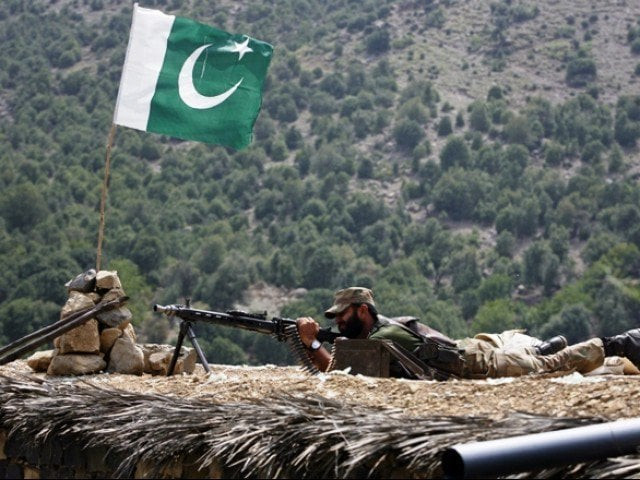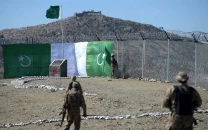Nobody's taken more bad guys off the battlefield than the Pakistanis: former US Intelligence official
Also stresses upon how Pakistan has been 'America's best counterterrorism partner in many ways'

Representational image. PHOTO: REUTERS
In an interview with The New Yorker, the official said “Nobody had taken more bad guys off the battlefield than the Pakistanis.”
The writer cites a 2004 visit by then US Defence Secretary Donald Rumsfeld to Pakistan, handing a list of suspects to President General Pervez Musharraf and conveying US President George W Bush’s “bewilderment and annoyance that most of the terrorists on the list were suspected of hiding out in Pakistan.”
Trump’s vendetta against Pakistan
The matter was looked into by the general himself, a participant in the said meeting told The New Yorker. Within a month, one of the top names on the list was arrested by the Inter-Services Intelligence (ISI).
While the US appreciates the military intelligence for going all out against ‘certain’ terrorists, it has been accusing Pakistan of supporting others. “It’s frustrating. Our talking points have been identical for the last fifteen years: ‘You need to get tough on terrorism, and you need to close the sanctuaries,’ ” one former intelligence official the newspaper.
But when it comes to al Qaeda, current and former US national security advisors believe the terrorist outfit’s operations in Pakistan do not represent the threat it once did. “The center of gravity for al Qaeda was in the process of a fundamental shift from Pakistan to Syria,” said Joshua Geltzer, the former senior director for counter-terrorism on Obama’s national-security council.
Speaking to The New Yorker, Joshua White, a former national-security council adviser in the Obama Administration stressed that while the “outstanding list of al Qaeda-affiliated figures is small. But the Haqqani list is moving in the other direction.” According to White, when asked to pressure Haqqanis, Pakistan was “at times minimally responsive, but we always hit a wall.”
Although the White House seemed blind-slided by Trump’s tweets, the announcement by the US State Department to suspend military-equipment aid echoed his stance. His national-security advisor HR McMaster also endorsed a hardline stance against Islamabad – which the writer believes happened after McMaster saw a report titled “A New US Approach to Pakistan” by former ambassador to the US Husain Haqqani and Lisa Curtis, a research fellow at the Heritage Foundation where they argued “Pakistan is not an American ally.”
Pakistan thinks US leaders are fools, only gave us 'lies and deceit': Donald Trump
The publisher, however, highlights that the new hard-line approach is being resisted by the Pentagon and State Department officials, who emphasise that Pakistan could cut off the land and air routes that the US uses to supply American forces in Afghanistan. According to the writer, a senior US Administration official disputed claims that the Defence and State Departments were not part of developing the new approach, and the characterisation of Curtis and Haqqani’s paper as the 'blueprint' for the policy change. “There is a robust interagency process,” the official said. “There are many people involved in the policy process. There is a deliberative process.”
Speaking to The New Yorker, one former intelligence official sympathised with Trump’s position on Islamabad but pointed out that “even if Pakistan becomes the most benign country in the world, Afghanistan is not going to be Switzerland,” he said.



















COMMENTS
Comments are moderated and generally will be posted if they are on-topic and not abusive.
For more information, please see our Comments FAQ